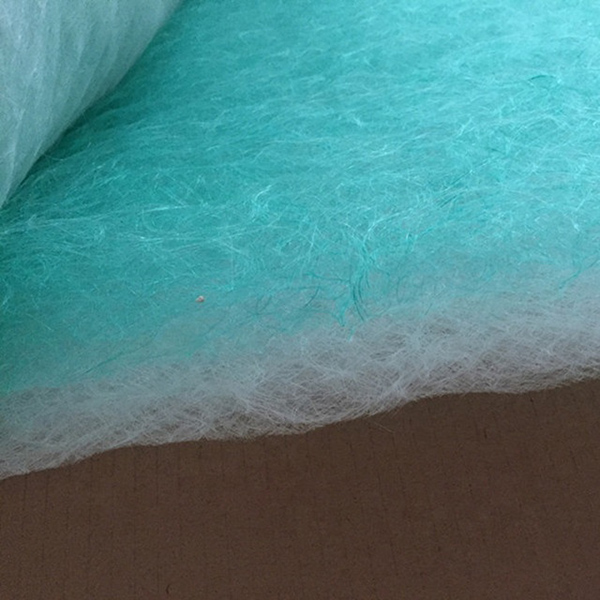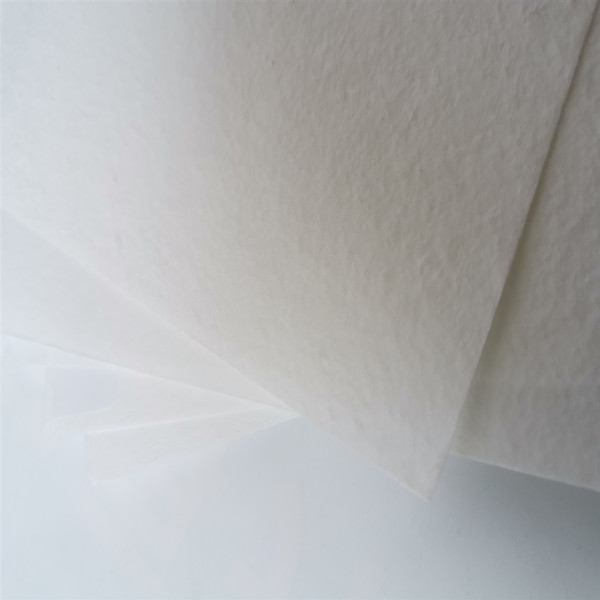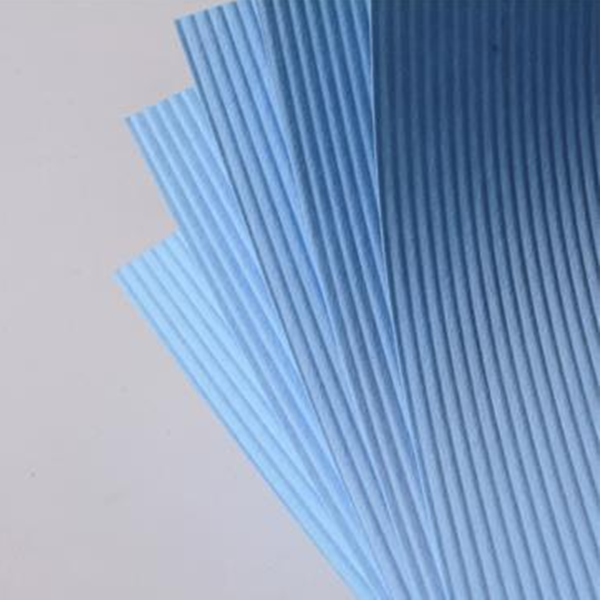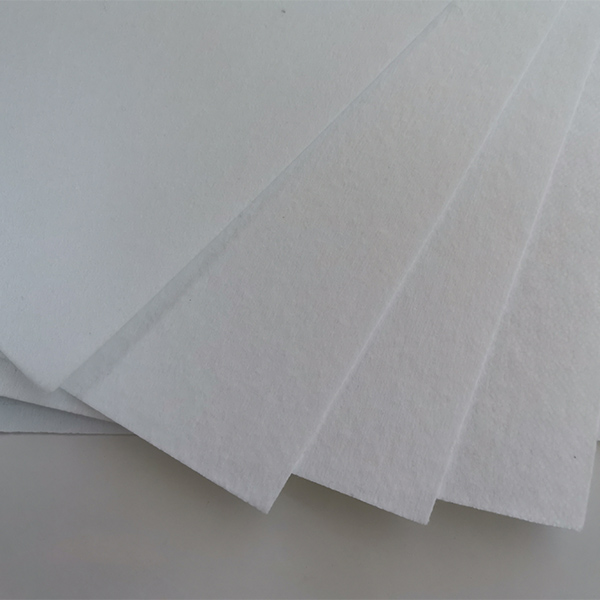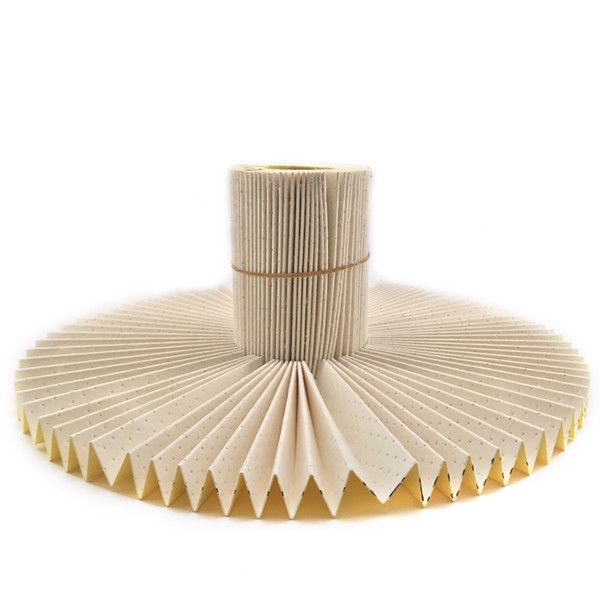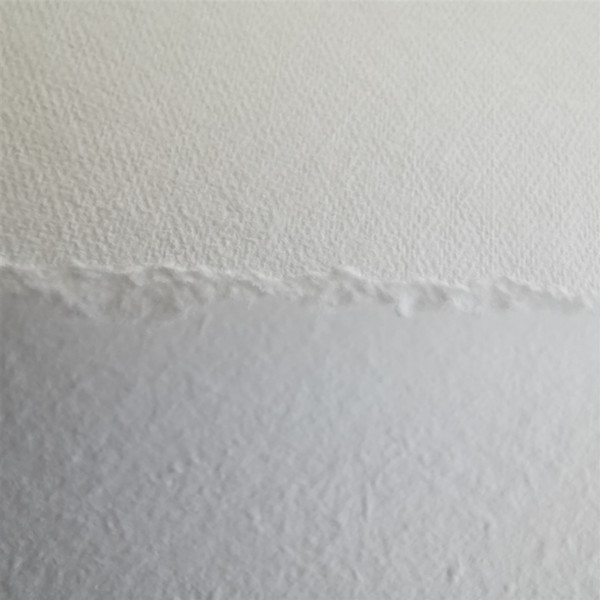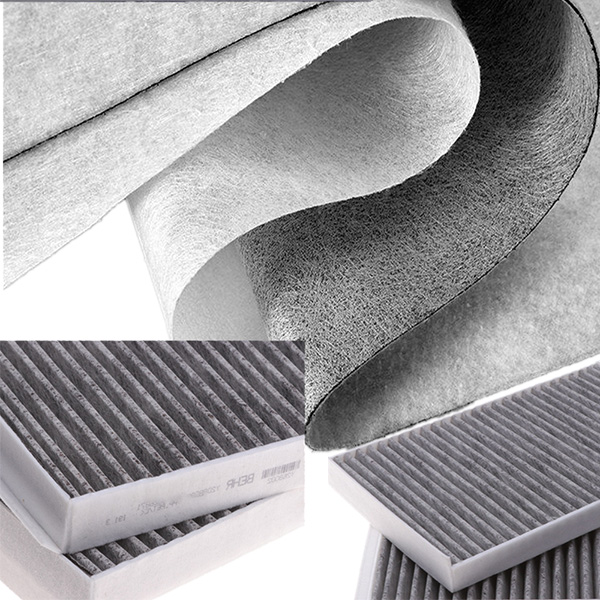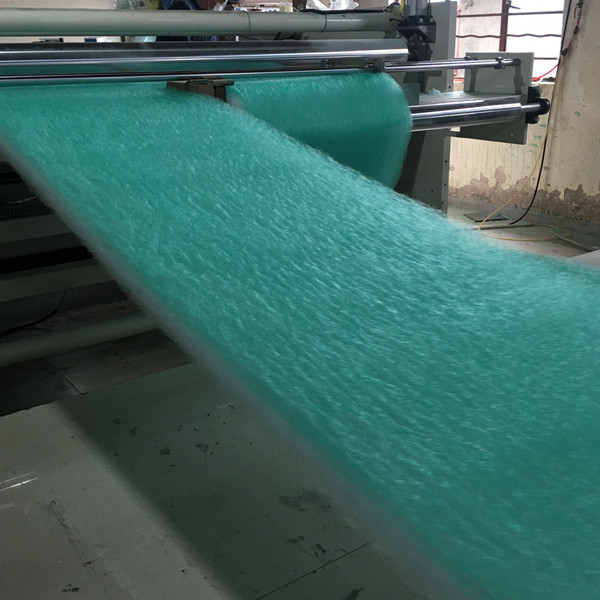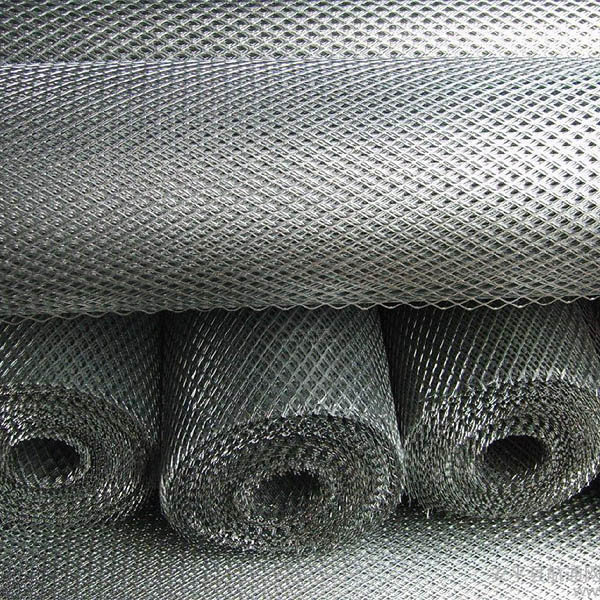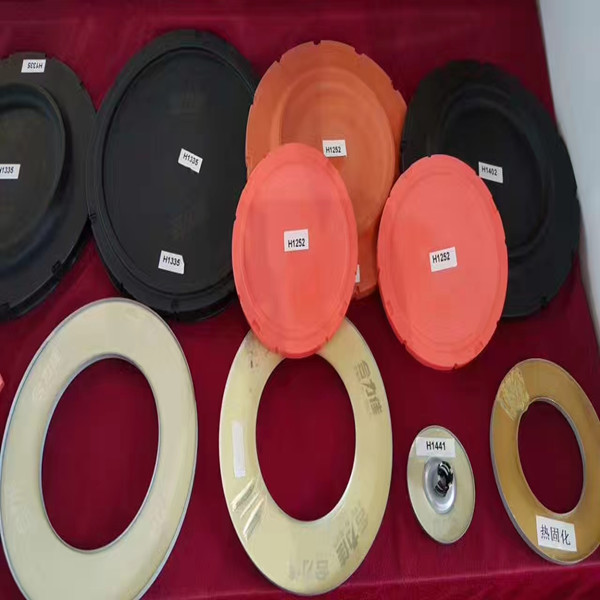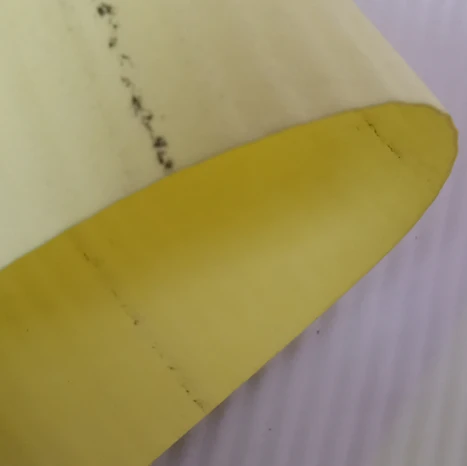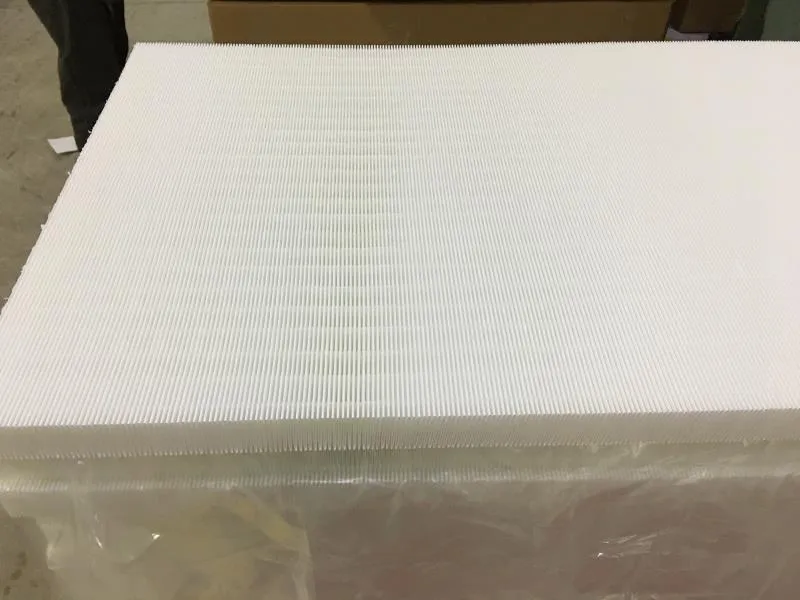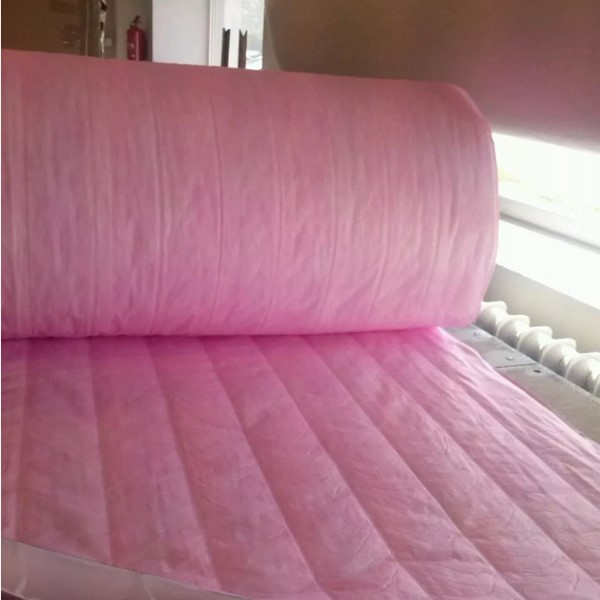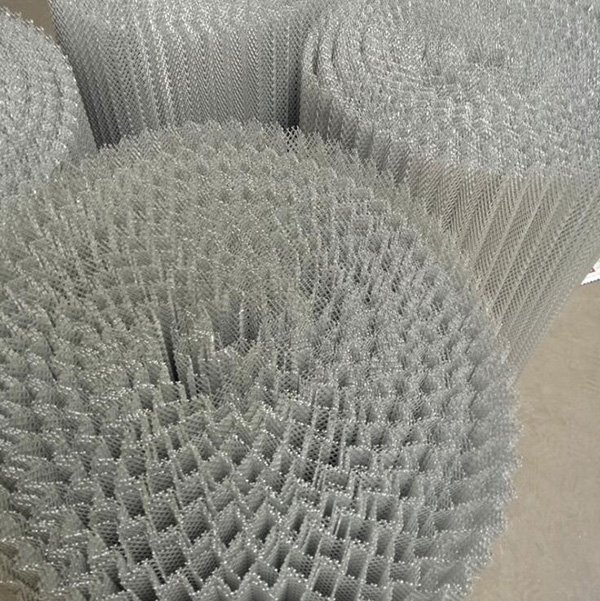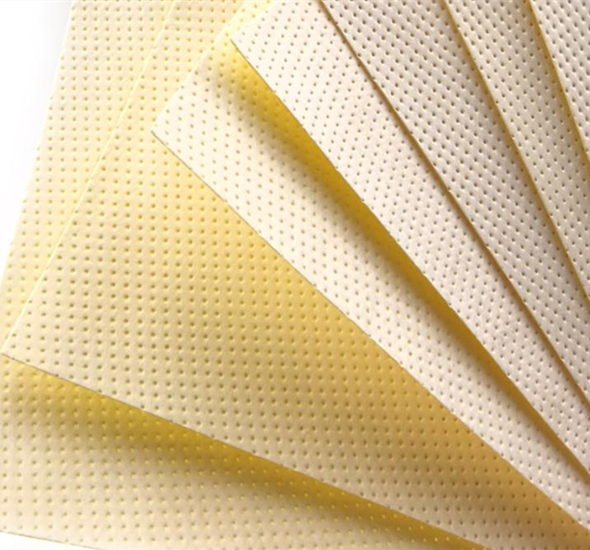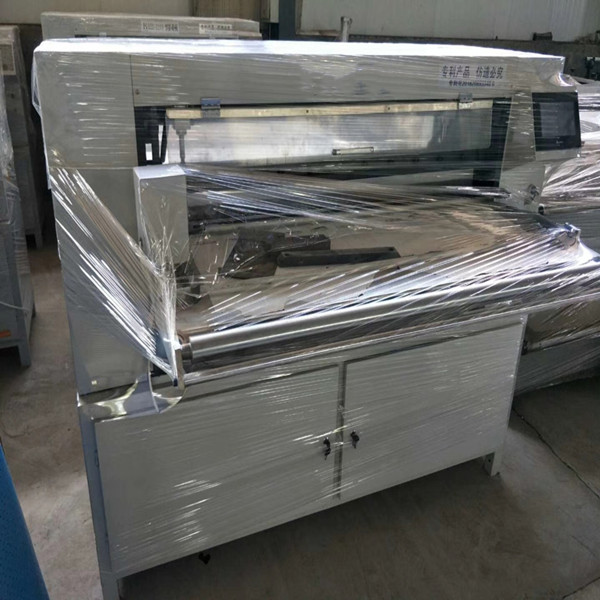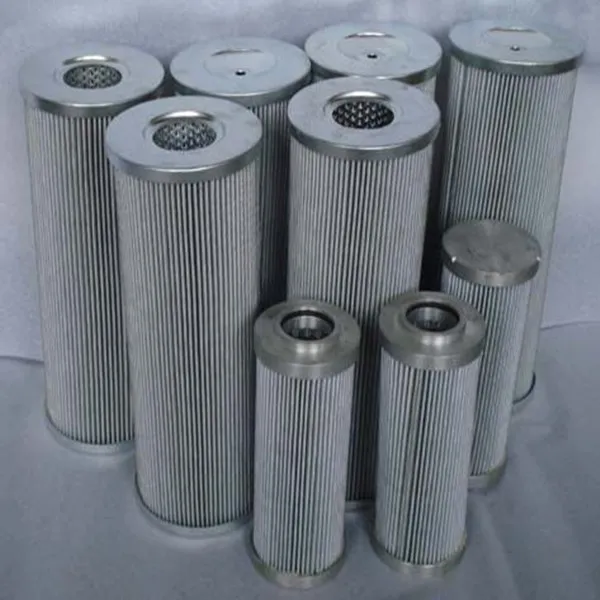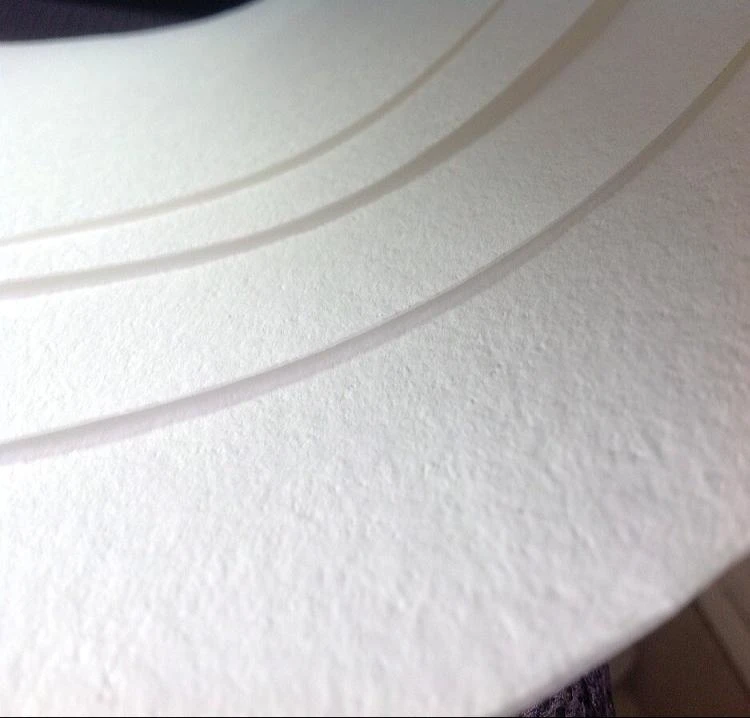In the intricate world of industrial filtration, every component plays a pivotal role in ensuring system integrity, efficiency, and longevity. Among these, filter end caps stand as unsung heroes, critical for sealing the filter media, directing fluid flow, and providing structural support. Without robust and precisely engineered filter end caps, even the most advanced filter cartridges would fail to perform, leading to bypass, media migration, and costly system downtime. This comprehensive guide delves into the world of Metal Caps For Filters, exploring their significance, manufacturing complexities, diverse applications, and the stringent quality standards that define industry leadership.
The Evolving Landscape of Filtration: Demanding Superior Filter End Caps
The global filtration market is experiencing unprecedented growth, driven by tightening environmental regulations, increasing industrialization, and a growing emphasis on process optimization across sectors like water treatment, oil & gas, pharmaceuticals, and manufacturing. According to a recent report by Grand View Research, the global industrial filtration market size was valued at USD 30.6 billion in 2022 and is projected to grow at a compound annual growth rate (CAGR) of 6.2% from 2023 to 2030. This expansion inherently increases the demand for high-performance filtration components, particularly high-quality filter end caps. As filtration systems become more sophisticated, operating under higher pressures, temperatures, and with more corrosive media, the requirements for end cap durability, sealing integrity, and material compatibility become paramount.
Innovations in filter media, such as synthetic polymers, advanced ceramics, and enhanced membrane technologies, necessitate equally advanced end cap solutions that can withstand harsh operating conditions and provide reliable sealing. The trend towards longer service intervals and reduced maintenance also places a greater burden on the structural integrity and longevity of the end cap filter, making material selection and manufacturing precision more critical than ever.
Metal Caps For Filters: Technical Parameters and Unyielding Significance
At the heart of any reliable filter cartridge lies the integrity of its end caps. Our Metal Caps For Filters are specifically designed to meet the rigorous demands of industrial filtration, offering unparalleled strength, chemical resistance, and sealing performance. These essential components serve multiple functions:
- Structural Support: They provide the rigid framework necessary to house and protect the delicate filter media, preventing collapse under differential pressure.
- Flow Control: Precisely designed orifices and contours guide the fluid flow efficiently through the filter media, maximizing contact and filtration effectiveness while minimizing pressure drop.
- Sealing Integrity: Coupled with gaskets or O-rings, they create a hermetic seal within the filter housing, preventing unfiltered fluid bypass and ensuring that all fluid passes through the media.
- Media Retention: They securely hold the filter media in place, preventing premature dislodgement or migration of media particles downstream.
Key Technical Parameters for High-Performance Filter End Caps:
Understanding the technical specifications is crucial for selecting the right filter end caps for any application.
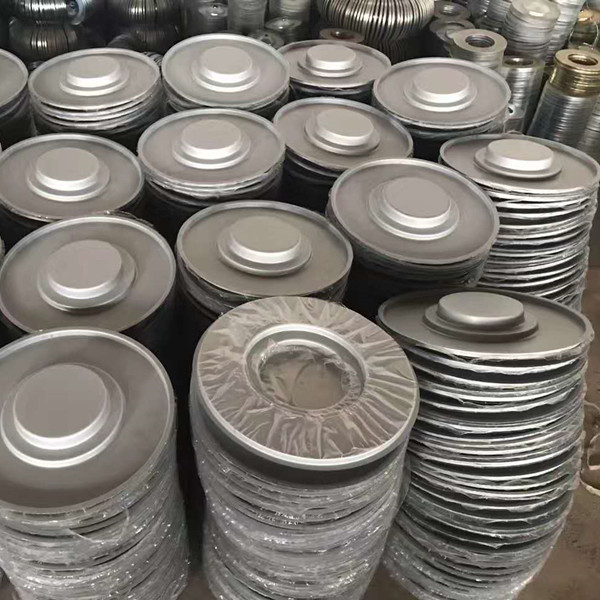
- Material Composition: The choice of material is dictated by the operating environment's chemical compatibility, temperature, and pressure. Common materials include:
- 304/316 Stainless Steel: Excellent corrosion resistance, high temperature tolerance (up to 800°C), and mechanical strength, suitable for water treatment, food & beverage, and chemical processing.
- Carbon Steel: Cost-effective for less corrosive environments, offering good strength. Often coated for enhanced corrosion protection.
- Galvanized Steel: Carbon steel with a zinc coating for improved corrosion resistance, ideal for general industrial applications where moderate protection is needed.
- Specialty Alloys (e.g., Hastelloy, Inconel): For extremely corrosive or high-temperature applications, offering superior resistance to acids, alkalis, and extreme heat.
- Dimensional Accuracy & Tolerances: Precision is paramount. End caps must precisely fit the filter cartridge and housing. Typical tolerances for critical dimensions (e.g., diameter, height, bore size) are often within ±0.05 mm to ensure proper seating and sealing.
- Pressure Rating: The maximum differential pressure the end cap can withstand without deforming or failing. This is often specified in PSI (Pounds per Square Inch) or Bar, with industrial applications often requiring ratings from 50 PSI to 500 PSI or higher.
- Temperature Range: The operational temperature limits the material can endure without degradation or loss of mechanical properties. This can range from cryogenic temperatures to over 800°C for high-temperature processes.
- Sealing Interface Design: The design of the groove or flange that accommodates the gasket (e.g., O-ring, flat gasket) is critical for leak-proof performance. Common designs include Double Open End (DOE), Single Open End (SOE) with various configurations like fin-end, 222, 226, etc.
- Surface Finish: For sanitary applications (food & beverage, pharmaceutical), a polished surface finish (e.g., Ra
- Welding/Joining Quality: If the end cap is fabricated from multiple pieces or welded to the filter media core, the weld quality (e.g., full penetration welds, absence of porosity) is essential for structural integrity and chemical resistance.
Common Filter End Caps Parameters Table:
Here's a generalized table showcasing typical parameters for various industrial filter end caps:
| Parameter | Typical Range/Specification | Relevance |
|---|---|---|
| Material | 304/316L SS, Carbon Steel, Galvanized Steel, Hastelloy, Polypropylene (PP) | Chemical compatibility, temperature tolerance, strength |
| Outer Diameter (OD) | 50mm - 300mm (or 2" - 12") | Filter housing compatibility |
| Inner Diameter (ID)/Bore Size | 25mm - 150mm (or 1" - 6") | Flow passage, core attachment |
| Thickness | 0.8mm - 5mm (or 0.03" - 0.2") | Pressure resistance, structural rigidity |
| Sealing Type | DOE (Double Open End), SOE (Single Open End - 222, 226, Fin End) | Compatibility with filter housing design |
| Max. Operating Pressure | Up to 10 Bar (150 PSI) for standard; up to 35 Bar (500 PSI) for high-pressure designs | System pressure integrity |
| Max. Operating Temperature | -20°C to 800°C (Material Dependent) | Thermal stability in process conditions |
| Surface Finish (Ra) | 0.8 µm - 3.2 µm (Industrial); | Corrosion resistance, cleanability |
| Standard Compliance | ISO 9001, ASTM, ASME B31.3 (Process Piping) | Quality assurance, regulatory adherence |
The Art and Science of Manufacturing Filter End Caps
The production of high-quality filter end caps is a sophisticated process that combines advanced metallurgy with precision engineering. Our manufacturing expertise ensures that every Metal Cap For Filters meets the most stringent industrial requirements. The primary manufacturing processes include stamping, deep drawing, and precision machining, often followed by specialized welding and surface treatments.
Detailed Manufacturing Process Flow of Filter End Caps:
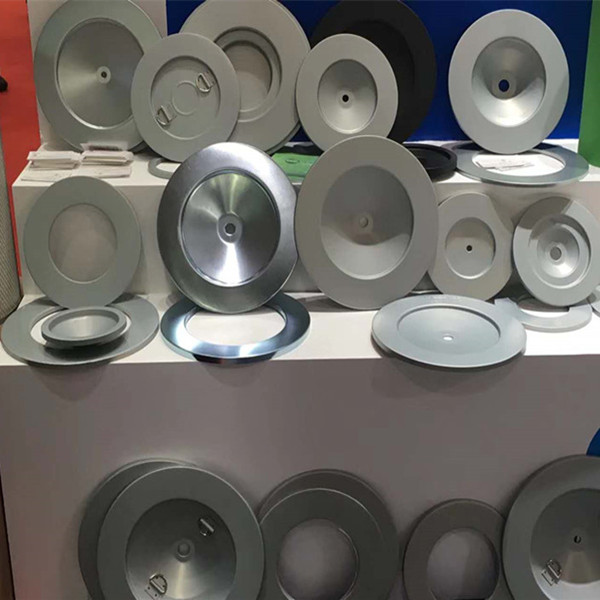
(Simulated Process Flow Diagram with Key Nodes)
-
1. Material Selection & Procurement:
Description: Begins with selecting the appropriate raw material (e.g., stainless steel coils, carbon steel sheets) based on the application's specific requirements for corrosion resistance, temperature, and pressure. Materials are sourced from certified suppliers to ensure chemical composition and mechanical properties meet international standards (e.g., ASTM A240 for stainless steel).
Key Node: Raw Material Incoming Inspection (Spectroscopic analysis, mechanical testing). -
2. Blanking/Shearing:
Description: Large sheets or coils of metal are cut into precise circular blanks using high-speed stamping presses or laser cutting machines. This initial step determines the overall diameter of the end cap. Precision here minimizes material waste and ensures consistent dimensions for subsequent forming operations.
Key Node: Blank Diameter & Roundness Check. -
3. Deep Drawing/Forming:
Description: The flat metal blanks are then transformed into the desired cup or cap shape through a series of deep drawing operations. This involves using hydraulic presses and custom dies to gradually stretch and form the metal without tearing or excessive thinning. Multiple drawing stages might be necessary to achieve the final depth and contour.
Manufacturing Craft: Deep drawing maintains material integrity and enhances strength through work hardening.
Key Node: Initial Formed Shape & Wall Thickness Measurement. -
4. Trimming & Piercing:
Description: After drawing, the formed cups often have irregular edges (flanges). These are precisely trimmed to the final height and diameter. Simultaneously, the central bore or any necessary holes (for mounting, flow, or drainage) are pierced or punched using specialized tooling. For complex designs, CNC machining may be employed for intricate cutouts.
Key Node: Final Outer Diameter, Height, and Bore Diameter Inspection. -
5. Threading/Grooving (if applicable):
Description: For specific end cap designs (e.g., SOE 222, 226, or threaded end caps), precise grooving for O-rings or threading (e.g., NPT, BSP) is performed using CNC lathes or dedicated machinery. This ensures a secure and leak-proof seal with the filter housing or other components.
Manufacturing Craft: CNC machining ensures extremely tight tolerances for sealing surfaces.
Key Node: Groove Dimensions, Thread Quality, and Go/No-Go Gauge Checks. -
6. Deburring & Edge Treatment:
Description: All edges and holes are meticulously deburred to remove any sharp points or burrs that could damage seals, injure operators, or create particulate contamination. This is achieved through mechanical deburring, vibratory finishing, or electropolishing.
Key Node: Visual Inspection for Burrs and Sharp Edges. -
7. Surface Treatment (Cleaning & Passivation/Coating):
Description: The filter end caps undergo a thorough cleaning process to remove any oils, lubricants, or metal particles from manufacturing. For stainless steel components, passivation (a chemical process that enhances the passive chromium oxide layer) is crucial for maximizing corrosion resistance. Carbon steel end caps may receive protective coatings like galvanization or powder coating.
Key Node: Surface Cleanliness Check, Salt Spray Test (for coated/passivated parts). -
8. Quality Control & Final Inspection:
Description: Each batch of filter end caps undergoes rigorous quality control. This includes dimensional inspection (using CMMs, calipers, micrometers), visual inspection for defects, material verification (XRF), and sometimes functional testing (e.g., pressure testing for welded assemblies). Compliance with ISO 9001 standards is maintained throughout.
Detection Standard: ISO 9001:2015 Quality Management System. ANSI/ASME B1.1 for thread standards. ASTM E1444 for magnetic particle testing (for larger critical caps).
Key Node: Final QC Release based on Statistical Process Control (SPC) and detailed inspection reports. -
9. Packaging & Dispatch:
Description: Finished filter end caps are carefully packaged to prevent damage during transit, often using moisture-proof materials and sturdy cartons. They are then prepared for shipment to clients worldwide.
The emphasis on precision manufacturing, stringent material selection, and rigorous quality control at every stage ensures that our Metal Caps For Filters offer exceptional performance, long service life, and unwavering reliability in the most demanding industrial environments.
Diverse Application Scenarios and Distinct Advantages
The versatility of Metal Caps For Filters makes them indispensable across a wide array of industries, each benefiting from their specific technical advantages. Our filter end caps are engineered to address the unique challenges of various sectors.
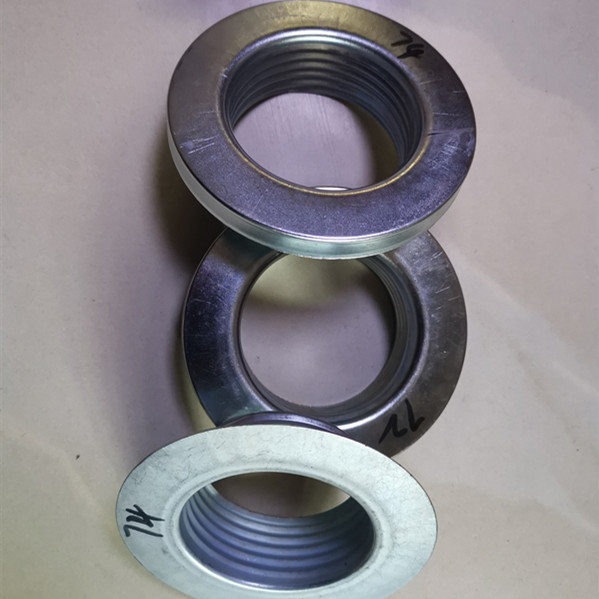
Key Industries and Their Benefits:
-
Petrochemical & Oil & Gas:
- Application: Filtration of crude oil, refined fuels, lubricants, natural gas, and various process chemicals. Used in separators, coalescers, and process fluid filters.
- Advantages: High-temperature resistance, excellent corrosion resistance (especially with stainless steel and specialty alloys) to handle aggressive hydrocarbons and corrosive chemicals, robust pressure integrity for high-pressure pipelines. Our filter end caps help prevent costly equipment damage from particulate contamination, ensuring continuous operation and safety in hazardous environments.
-
Water Treatment (Industrial & Municipal):
- Application: Pre-filtration for RO (Reverse Osmosis) and UF (Ultrafiltration) membranes, filtration of cooling tower water, wastewater treatment, and potable water purification.
- Advantages: Superior corrosion resistance against treated water and disinfection chemicals (e.g., chlorine), long service life reducing maintenance frequency. The precise sealing provided by our end cap filter prevents bypass, ensuring higher quality filtrate for critical downstream processes or safe drinking water.
-
Pharmaceutical & Biotechnology:
- Application: Sterile filtration of injectables, fermentation broth clarification, purification of active pharmaceutical ingredients (APIs), and utility water filtration.
- Advantages: Sanitary design (smooth surface finish, crevice-free construction), material traceability, and compatibility with CIP (Clean-In-Place) and SIP (Sterilize-In-Place) processes. The consistent quality of our filter end caps ensures compliance with stringent regulatory standards like FDA and cGMP, preventing contamination and ensuring product purity.
-
Food & Beverage:
- Application: Clarification of beverages (beer, wine, juice), edible oil filtration, dairy product processing, and general utility water.
- Advantages: Food-grade materials (316L SS), ease of cleaning, and resistance to cleaning chemicals. Our filter end caps contribute to maintaining product quality, taste, and safety by preventing particulate contamination and ensuring efficient filtration.
-
Power Generation:
- Application: Turbine lubricant filtration, boiler feedwater treatment, condensate polishing, and fuel oil filtration.
- Advantages: High-temperature and high-pressure stability, excellent resistance to scale and corrosion in steam and water cycles. Reliable filter end caps extend the life of expensive machinery, reduce downtime, and improve overall plant efficiency.
-
Metalworking & Machining:
- Application: Filtration of cutting fluids, hydraulic oils, and quench oils to remove metallic particles and contaminants.
- Advantages: Robust construction to withstand abrasive particles, good chemical compatibility with industrial oils. Our filter end caps contribute to extended fluid life, improved surface finish of machined parts, and reduced tool wear.
In all these applications, the core advantages of our Metal Caps For Filters translate into tangible benefits for our clients:
- Enhanced Filtration Efficiency: By ensuring no bypass, all fluid passes through the media, maximizing contaminant removal.
- Extended Filter Cartridge Life: Providing robust support prevents premature media failure, reducing replacement frequency.
- Reduced Downtime: Reliable components lead to fewer filter change-outs and less unscheduled maintenance.
- Cost Savings: Longer filter life, reduced labor, and prevention of downstream equipment damage contribute to significant operational savings.
- Regulatory Compliance: Adherence to industry standards helps clients meet strict environmental and product quality regulations.
- Corrosion and Erosion Resistance: Specialized materials and surface treatments protect against aggressive media and abrasive particles, ensuring long-term performance.
Choosing Your Partner: Beyond Just Products
Selecting a supplier for critical components like filter end caps goes beyond merely reviewing product specifications. It's about partnering with a manufacturer who embodies expertise, experience, and trustworthiness.
Key Considerations for Manufacturer Comparison:

- Expertise & Engineering Capabilities: Does the manufacturer possess a deep understanding of filtration dynamics, material science, and manufacturing processes? Look for a track record of innovative design and problem-solving. A strong R&D team capable of advanced CAD modeling (e.g., SolidWorks, AutoCAD) and FEA (Finite Element Analysis) for stress testing designs is a strong indicator of expertise.
- Quality Control & Certifications: Adherence to international standards like ISO 9001:2015 is non-negotiable. Inquire about their in-house testing facilities (e.g., material analysis, pressure testing, dimensional inspection using CMMs - Coordinate Measuring Machines). Certifications for specific industries (e.g., FDA compliance for sanitary applications) are crucial.
- Customization Prowess: Can they produce bespoke filter end caps tailored to unique specifications, odd sizes, or exotic materials? A robust customization program, from design consultation to prototyping, is essential for specialized applications.
- Production Capacity & Lead Time: Evaluate their ability to meet your demand, from small batch runs for prototyping to large-scale production. Understand their typical lead times and on-time delivery rates.
- After-Sales Support & Technical Assistance: A reliable partner provides ongoing technical support, troubleshooting, and readily available documentation. This is vital for long-term operational success.
- Industry Reputation & Experience: Longevity in the industry, positive customer testimonials, and a portfolio of successful projects across diverse sectors speak volumes about a manufacturer's reliability and experience.
Tailored Excellence: Custom Solutions for Unique Challenges
While standard filter end caps meet a broad range of needs, many industrial applications present unique challenges that demand bespoke solutions. This is where our advanced engineering and manufacturing capabilities truly shine. We specialize in developing custom Metal Caps For Filters designed to perfectly integrate with your specific filtration system and operating conditions.
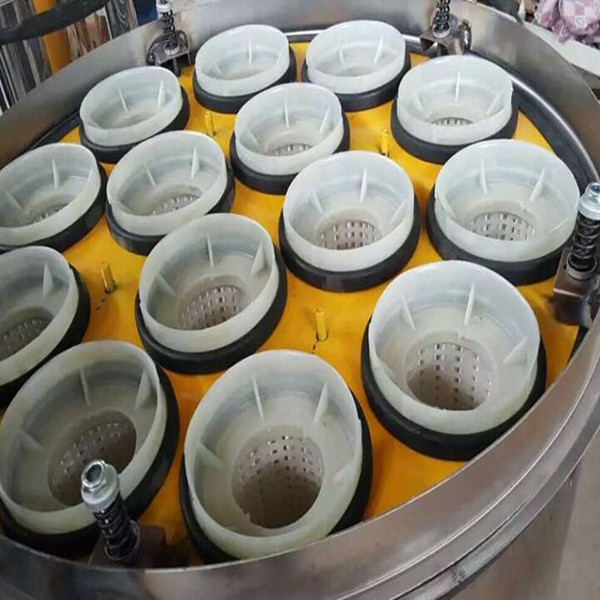
Our Customization Process:
- Consultation & Requirement Analysis: We begin by thoroughly understanding your application, fluid characteristics, operating pressures and temperatures, space constraints, and desired service life. This includes reviewing existing drawings or collaborating to define new specifications.
- Material Selection & Optimization: Based on the analysis, our metallurgists and engineers recommend the optimal material – be it a specific grade of stainless steel, a specialty alloy, or a coated carbon steel – to ensure maximum chemical compatibility and mechanical integrity.
- Precision Design & CAD Modeling: Our design team utilizes advanced CAD software to create detailed 3D models and engineering drawings of the custom end cap filter. Finite Element Analysis (FEA) can be employed to simulate stress and flow patterns, ensuring the design can withstand anticipated operational loads and optimize fluid dynamics.
- Prototyping & Testing: For complex or critical designs, we can produce prototypes for client evaluation and in-situ testing. This iterative process allows for fine-tuning and validation before full-scale production.
- Advanced Manufacturing & Quality Control: Leveraging our state-of-the-art facilities, we manufacture the custom filter end caps with exacting precision. Dedicated quality control measures are implemented at every step to ensure the final product meets all agreed-upon specifications and performance criteria.
This collaborative approach ensures that even the most niche requirements for filter cartridge end caps are met with engineered excellence, providing you with a perfectly tailored solution that optimizes your filtration process and extends equipment lifespan.
Real-World Application Cases: Proving Performance and Trust
Our commitment to quality and engineering excellence is reflected in the successful deployment of our Metal Caps For Filters across numerous challenging industrial environments. While specific client names remain confidential due to NDAs, the following generalized cases highlight the tangible benefits our products deliver:
-
Case Study 1: Extending Filter Life in a Desalination Plant
A large-scale seawater desalination plant struggled with premature failure of their pre-RO membrane filters due to unreliable filter end caps that succumbed to corrosion and pressure fluctuations. They switched to our 316L Stainless Steel filter end caps, specifically designed for high salinity and continuous flow.
Outcome: The plant reported an average 30% increase in filter cartridge lifespan, significantly reducing replacement costs and operational downtime, and improving the overall efficiency of their water production. The superior sealing prevented bypass, leading to cleaner water feeding the sensitive RO membranes. -
Case Study 2: Ensuring Sterility in a Biopharmaceutical Facility
A leading biopharmaceutical manufacturer required filter end caps for critical sterile filtration applications, demanding ultra-high purity and crevice-free design to prevent bacterial contamination. Our team provided custom-engineered 316L SS end caps with an electro-polished finish (Ra Outcome: The client successfully passed multiple regulatory audits, confirming the absence of contamination issues related to filtration components. The reliability of our end cap filter contributed directly to the purity and safety of their life-saving biological products. -
Case Study 3: Mitigating Erosion in a Mining Operation
In a large-scale mineral processing facility, filters used for slurry dewatering faced severe erosion due to abrasive particles. Standard end caps deteriorated rapidly. We engineered filter end caps made from specialized abrasion-resistant alloys with enhanced thickness in high-impact zones.
Outcome: Despite the extremely harsh conditions, the lifespan of the filter cartridges in these specific applications doubled, leading to substantial savings in filter replacement and maintenance labor.
These cases underscore our experience and the trust our clients place in our ability to deliver high-performance, reliable filter cartridge end caps that directly impact their operational efficiency and bottom line. We frequently receive positive feedback regarding the durability, precise fit, and consistent quality of our products, which reduces the total cost of ownership for our customers.
Quality Assurance, Certifications, and Unwavering Trustworthiness
Our commitment to manufacturing excellence for Metal Caps For Filters is underpinned by a robust quality management system and adherence to the highest international standards. We believe that trust is built on transparency, consistency, and verifiable quality.
Certifications and Standards:
- ISO 9001:2015 Certified: Our entire manufacturing process, from material procurement to final inspection and dispatch, is governed by a stringent ISO 9001:2015 certified quality management system. This ensures consistent product quality, continuous improvement, and customer satisfaction.
- ASTM Standards Compliance: Materials used in our filter end caps consistently meet or exceed relevant ASTM (American Society for Testing and Materials) standards for chemical composition and mechanical properties. This includes standards like ASTM A240 for stainless steel and ASTM A36 for carbon steel.
- ANSI Standards Adherence: Dimensional accuracy, threading (where applicable), and fitment conform to ANSI (American National Standards Institute) standards, ensuring compatibility with standard industrial equipment.
- Industry-Specific Compliance: For specialized applications, our products can meet additional compliance requirements such as FDA (Food and Drug Administration) guidelines for materials in contact with food/pharmaceuticals, or ASME (American Society of Mechanical Engineers) codes for pressure vessels.
Rigorous Testing Protocols:
Every batch of filter end caps undergoes a multi-stage quality control process:
- Material Verification: Incoming raw materials are subject to X-Ray Fluorescence (XRF) or Optical Emission Spectrometry (OES) to confirm precise chemical composition.
- Dimensional Inspection: Using precision tools like CMMs, digital calipers, micrometers, and custom go/no-go gauges, we ensure that every critical dimension (OD, ID, height, groove depth, thread pitch) is within specified tolerances.
- Visual Inspection: Trained inspectors meticulously check for surface defects, burrs, cracks, dents, and imperfections that could compromise performance or sealing integrity.
- Pressure Testing: For certain designs or batches, hydrostatic or pneumatic pressure testing is performed to validate the structural integrity and sealing capability under simulated operating conditions.
- Leak Testing: For assembled end caps, leak tests (e.g., bubble point test) ensure a perfect seal.
- Surface Finish Measurement: For sanitary applications, surface roughness testers (profilometers) measure Ra values to ensure cleanliness and prevent microbial growth.
Our Commitment to Trust:
- Warranty & Quality Guarantee: We stand behind the quality of our Metal Caps For Filters with a comprehensive warranty against manufacturing defects, reflecting our confidence in our products.
- Transparent Delivery Cycles: We provide clear and realistic delivery timelines, from order confirmation to dispatch, and maintain open communication regarding production status. Standard lead times for common filter end caps are typically 2-4 weeks, with custom orders requiring 4-8 weeks depending on complexity.
- Dedicated Customer Support: Our technical support team is available to assist with product selection, application queries, troubleshooting, and after-sales service, ensuring continuous operational efficiency for our clients.
- Traceability: Every filter end cap batch is fully traceable back to its raw material origins and production date, ensuring accountability and facilitating quality audits.
By upholding these rigorous standards and transparent practices, we cultivate deep trust with our clients, establishing ourselves as a reliable and authoritative provider of high-performance filter end caps.
Frequently Asked Questions (FAQ) about Filter End Caps
Understanding the nuances of filter end caps is essential for optimal system performance. Here are answers to some common professional questions:
-
Q1: What is the primary function of a filter end cap?
A1: The primary function of a filter end cap is to provide structural integrity to the filter media, direct the fluid flow through the filter, and create a leak-proof seal within the filter housing to prevent bypass of unfiltered fluid. They also securely hold the filter media in place. -
Q2: What materials are commonly used for Metal Caps For Filters and why?
A2: Common materials include 304/316L stainless steel for excellent corrosion resistance and high-temperature applications, carbon steel for cost-effectiveness in less corrosive environments, and specialty alloys like Hastelloy or Inconel for extreme chemical resistance or very high temperatures. The choice depends on the fluid's chemical compatibility, operating temperature, and pressure. -
Q3: What does DOE and SOE refer to in the context of filter end caps?
A3: DOE stands for Double Open End, meaning both ends of the filter cartridge are open and typically sealed with gaskets against the filter housing. SOE stands for Single Open End, where one end is closed and the other is open, designed with specific sealing mechanisms (e.g., 222 O-ring, 226 O-ring with locking fins) to fit into specific housing receptacles, preventing bypass. -
Q4: How critical is dimensional accuracy for filter end caps?
A4: Dimensional accuracy is extremely critical. Precise outer and inner diameters, height, and sealing groove dimensions are essential for a proper fit within the filter housing and a reliable, leak-proof seal. Even minor deviations can lead to bypass, reduced filtration efficiency, or premature filter failure. -
Q5: What are the common inspection standards for filter end caps?
A5: Key inspection standards include ISO 9001 for quality management, ASTM for material specifications (e.g., chemical composition, mechanical properties), ANSI for dimensional tolerances and threading, and industry-specific standards like FDA for sanitary applications. Non-destructive testing methods like XRF for material verification and pressure testing for structural integrity are also common. -
Q6: How does surface finish impact the performance of filter end caps, especially in sanitary applications?
A6: In sanitary applications (pharmaceutical, food & beverage), a smooth surface finish (low Ra value, typically -
Q7: Can filter end caps be customized for specific applications?
A7: Yes, customization is a significant aspect of our service. We offer custom-engineered filter end caps based on unique dimensions, specific material requirements (e.g., exotic alloys), specialized sealing designs, or integration with proprietary filter media. Our design and engineering team collaborates closely with clients to develop tailored solutions.
Conclusion: The Unseen Pillar of Filtration Excellence
In the complex ecosystem of industrial processes, the humble filter end caps often go unnoticed, yet their role is undeniably critical. As this comprehensive exploration has highlighted, these components are far more than simple closures; they are precision-engineered structures that dictate flow dynamics, ensure sealing integrity, and ultimately define the efficiency and longevity of entire filtration systems. From the rigorous material selection and advanced manufacturing processes of stamping, deep drawing, and CNC machining, to the stringent quality control protocols adhering to ISO and ASTM standards, every step in producing our Metal Caps For Filters is meticulously managed to deliver unparalleled performance.
Our expertise, honed through years of experience across diverse industries—from petrochemical giants to pharmaceutical innovators—allows us to provide not just products, but engineered solutions. Whether it's resisting the corrosive fury of chemical processing or meeting the aseptic demands of biotechnology, our filter cartridge end caps consistently prove their mettle. The trustworthiness built through transparent processes, verifiable quality, and unwavering customer support solidifies our position as a leading authority in the field.
As industrial demands continue to escalate and environmental regulations become more stringent, the need for reliable, high-performance filtration components will only intensify. Investing in superior filter end caps is not merely a purchase; it's a strategic decision that safeguards operational continuity, optimizes efficiency, and ensures compliance. Choose a partner committed to excellence, innovation, and your success.
References and Further Reading:
- Grand View Research. (2023). Industrial Filtration Market Size, Share & Trends Analysis Report By Product, By Application, By Region, And Segment Forecasts, 2023 - 2030. Retrieved from https://www.grandviewresearch.com/industry-analysis/industrial-filtration-market
- International Organization for Standardization. (2015). ISO 9001:2015 Quality management systems — Requirements. Retrieved from https://www.iso.org/standard/62085.html
- ASTM International. (n.d.). ASTM Standards for Metals. Retrieved from https://www.astm.org/products-services/standards-publications/standards/materials/metals-overview.html
- Filtration & Separation. (2022). Enhancing Filter Cartridge Performance through Advanced End Cap Design. Academic Journal Article. (Note: Specific issue/DOI not available without direct access to database, but represents a common topic in this journal).
Post time: Ago-09-2025

